Advocating for Refugees
in the European Union
Advocating for Refugees
in the European Union
Norm-Based Strategies by
Civil Society Organizations
By Melissa Schnyder and Noha Shawki
LEXINGTON BOOKS
Lanham Boulder New York London
Published by Lexington Books
An imprint of The Rowman & Littlefield Publishing Group, Inc.
4501 Forbes Boulevard, Suite 200, Lanham, Maryland 20706
www.rowman.com
6 Tinworth Street, London SE11 5AL, United Kingdom
Copyright 2020 The Rowman & Littlefield Publishing Group, Inc.
All rights reserved . No part of this book may be reproduced in any form or by any electronic or mechanical means, including information storage and retrieval systems, without written permission from the publisher, except by a reviewer who may quote passages in a review.
British Library Cataloguing in Publication Information Available
Library of Congress Cataloging-in-Publication Data Available
ISBN 978-1-7936-0024-0 (cloth: alk. paper)
ISBN 978-1-7936-0025-7 (electronic)
 The paper used in this publication meets the minimum requirements of American National Standard for Information SciencesPermanence of Paper for Printed Library Materials, ANSI/NISO Z39.48-1992.
The paper used in this publication meets the minimum requirements of American National Standard for Information SciencesPermanence of Paper for Printed Library Materials, ANSI/NISO Z39.48-1992.
To Gigi and Sylvia, for asking difficult questions.
M.S.
To Julian, with much love and gratitude.
N.S.
Contents
National Organizations in High and Low Contestation States |
Identification of Norms Based on Themes Used by Refugee Assistance CSOs |
Defining Norms |
Foregrounding of Undesirable Norms by Pro-Refugee Civil Society Organizations in High Contestation States in Europe |
Norms Promoted by Pro-Refugee Civil Society Organizations in High Contestation States in Europe |
Foregrounding of Undesirable Norms by Pro-Refugee Civil Society Organizations in Low Contestation States in Europe |
Norms Promoted by Pro-Refugee Civil Society Organizations in Low Contestation States in Europe |
The motivation for writing this book stems from the observation that, over time, the increasing securitization of the movement of people by governments has actually decreased human security for many people around the globe. As political actors, pro-refugee civil society organizations often contest the formal and informal institutions that emerge from state securitization norms and from restrictive notions of national identity, proposing actions that reflect and promote a different set of norms that are anchored in human and refugee rights. As political scientists and researchers concerned with global issues that affect human security, we are interested in documenting and analyzing the normative contestation that has come to characterize the issue of the international protection of refugees. The case of the 2015 refugee crisis in Europe and its aftermath provides us an opportunity to research the dynamics of normative contestation and the processes involved in influencing norm-based institutional change through advocacy efforts.
Writing this book was made possible by the support and participation of many. We would like to thank the many key informants who gave their time to take part in interviews for this project and provided information about their organizations that permitted us to analyze norm-based strategies. We are inspired by the work they and their organizations (as well as other pro-refugee organizations) do as well as by their dedication and commitment to the protection of some of the most vulnerable people in our world. In addition, portions of this work were presented at the Midwest Political Science Association annual conference and benefitted from participants suggestions and comments. We would also like to thank American Public University for providing a research grant to support the fieldwork.
The editors and designers at Lexington Press with whom we worked have been responsive, helpful, and highly professional. We are grateful to Joseph Parry, Alison Keefner, and Bryndee Ryan for their assistance. We also thank the anonymous reviewer who provided helpful comments and suggestions that strengthened this book.
We thank our families for their continual support of our individual and combined research efforts, and the (sometimes unexpected) directions in which those can take us.
Although the precise origins and timeline of what has come to be known as the European refugee crisis marked by substantial loss of life (Collett 2016). As central Mediterranean crossings increased in the beginning of 2015, so too did drownings; one instance of an overcrowded capsized boat in April resulted in over 800 lives lost (Bonomolo and Kirchgaessner 2015). Moreover, the summer of 2015 witnessed a considerable spike in the number of people arriving via the eastern Mediterranean route from Turkey to Greece. In making their way to final destinations throughout the EU, refugees and migrants transited through the Western Balkans, creating a large-scale secondary movement. This sudden, visible increase prompted individual Member States to react, with many governments along the Western Balkans route opting to tighten their borders. Furthermore, as public backlash against migrants and refugees grew, politicians seeking to win elections began to adopt harsher stances on the issue of refugee protection. Overall, the situation at that time was marked by extreme volatility, with more than one million arrivals by land and sea in 2015 alone and nearly one million new asylum claims in the EU between January and November 2015 (European Commission 2017; see also Eurostat n.d.).
At the time of this writing, the EUs refugee crisis is entering a fifth year. To date, the situation has been marked by more than 1.7 million migrants and refugees having come to Europe, and more than 17,000 having lost their lives or gone missing in their attempted journeys to the continent (International Organization for Migration 2019). Thus far in 2019, there have been 1,090 recorded deaths of migrants crossing the Mediterranean (International Organization for Migration 2019). As we will discuss, although deterrence measures put in place by the EU have resulted in a steep reduction in arrivals by sea over the past several years, the journey itself has actually become more deadly, as the proportion of deaths per attempted crossing has increased. Data from the United Nations High Commissioner for Refugees (UNHCR) and the International Organization for Migration (IOM) show that one death occurred for every 57 arrivals in 2017, and over the course of 2018, 2,117 migrants died undertaking an attempted Mediterranean crossing (the equivalent of one death for every 51 arrivals) (UNHCR 2019; International Organization for Migration 2018), making 2017 and 2018 the two deadliest years of the crisis. Thus far in 2019, there has been the equivalent of one death for approximately every 80 arrivals (in 2015, for comparison, the death rate was one for every 266 arrivals) (International Organization for Migration 2019).
These dynamics have placed intense pressure on the EU to take action. From the outset, the volatility and sheer scale of the situation in the eastern Mediterranean presented an enormous challenge to the EU and its ability to respond, and it is important to note that its response is still evolving. Overall, however, the EUs crisis response has been piecemeal and ad hoc, characterized by a triage approach, which has been made more complex by the need for the EU to respect Member State sovereignty in devising a course of action. As others have noted, EU institutions have inevitably engaged in a significant amount of muddling through in developing a crisis response at the EU level (Collett and Le Coz 2018, 7). The authors go on to note that at the moment when policymakers should have been scrambling for an early response, EU institutions wavered (Collett and Le Coz 2018, 22). This reluctance signifies a strong sense of uncertainty as to what should constitute an appropriate response and reflects the lack of a clear set of goals and supporting narrative (Collett and Le Coz 2018). In general, the EUs response to the refugee crisis highlights institutional weaknesses in the governance and management of migration and asylum, and points to the clear need to develop a coherent and proactive crisis management plan and institutions to effectively address unexpected migration challenges in the future.

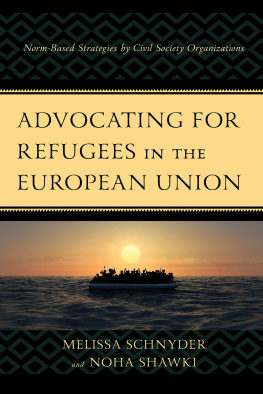

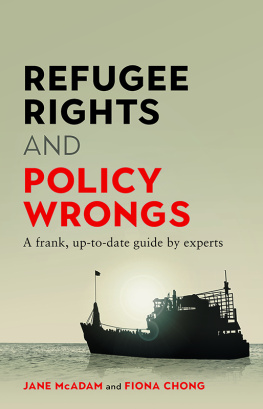
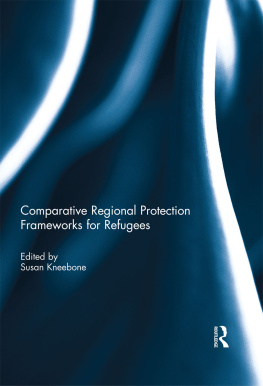
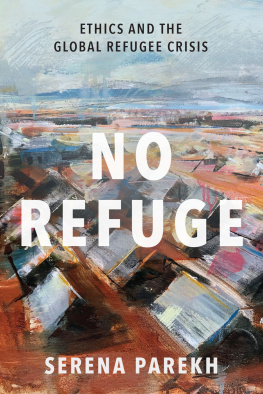
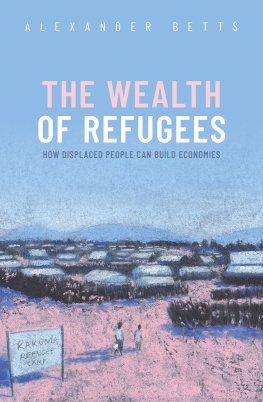
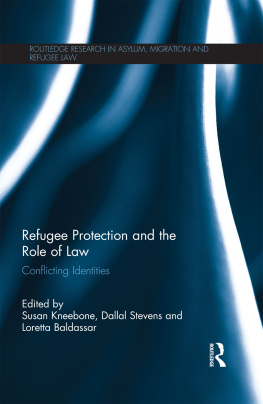
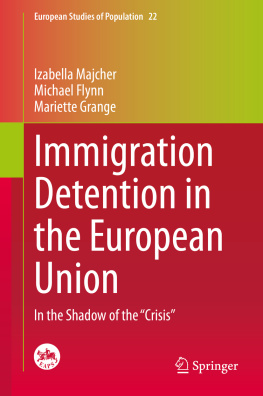
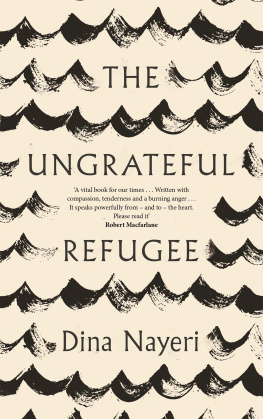

 The paper used in this publication meets the minimum requirements of American National Standard for Information SciencesPermanence of Paper for Printed Library Materials, ANSI/NISO Z39.48-1992.
The paper used in this publication meets the minimum requirements of American National Standard for Information SciencesPermanence of Paper for Printed Library Materials, ANSI/NISO Z39.48-1992.